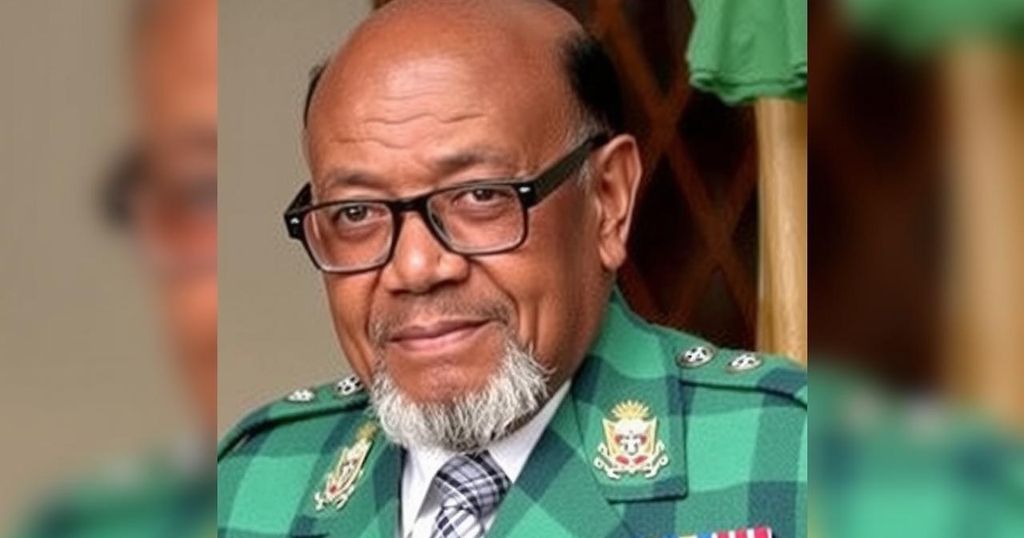Desi Bouterse, former dictator and president of Suriname, died at 79, leaving behind a controversial legacy marked by human rights violations and drug trafficking charges, yet retaining a base of support among the working class.
Desi Bouterse, the former dictator and subsequently elected president of Suriname, has passed away at the age of 79, as confirmed by government sources on Wednesday. Bouterse, who died on Tuesday, still retained support among the working-class population despite being a fugitive, having faced serious charges including the orchestrated killings of political opponents. His rise to power began with a military coup in 1980, leading to a complex political career marred by accusations of human rights violations.
Following his initial coup in 1980, Desi Bouterse swiftly ascended from a military sergeant major to the commander-in-chief, effectively ruling Suriname. Despite resigning in 1987 under international pressure due to acts of political violence, he managed to regain power through a bloodless coup in 1990. Bouterse served again as president from 2010 to 2020. His death followed a short illness while he remained in hiding, evading arrest for serious legal issues related to his dictatorship.
Bouterse’s legacy is intertwined with his contentious governance and allegations of human rights abuses. He was sentenced in absentia for the 1982 murder of 15 individuals and faced international scrutiny, including an Interpol arrest warrant related to drug trafficking charges. Although he denied responsibility for the alleged crimes, many held him accountable for the violent history of his regime. His policies, such as introducing free health care and schooling initiatives, garnered him some public support difficult to shake off even amid his checkered past.
Current President Chan Santokhi extended condolences to Bouterse’s family while urging tranquility among the populace. As tributes poured in from his National Democratic Party supporters, many mourned the loss of what they referred to as their “spiritual father.” Despite the gravity of his past, his impact on Suriname’s social fabric remains a contentious topic within political discussions.
In summary, Desi Bouterse’s life reflects a complex narrative that includes both significant governance achievements and profound controversies. His death marks the end of a tumultuous chapter in Suriname’s history, raising questions about the future of the nation as it grapples with his legacy. Bouterse’s journey from a military coup leader to a fugitive highlights the enduring struggle between justice and political governance in Suriname’s socio-political landscape.
Desi Bouterse was a prominent figure in Suriname’s political history, known for his military takeover in 1980 and subsequent rule as president. His tenure was characterized by significant conflict and controversy, particularly regarding human rights violations and charges related to drug trafficking. Following his military training in the Netherlands, Bouterse returned to Suriname, where he played a prominent role in the country’s politics for decades. His political maneuvers and repeated returns to power underline the complexities of Suriname’s leadership dynamics.
Desi Bouterse’s death at 79 concludes a life marked by significant political influence, a controversial legacy, and serious allegations of human rights violations. While he was revered by some for his social policies, he remains a controversial figure tainted by accusations of orchestrating violence against political adversaries. His passing invites reflection on the effects of his leadership and the ongoing challenges that Suriname faces in reconciling its past with the aspirations of its future.
Original Source: www.insidenova.com






